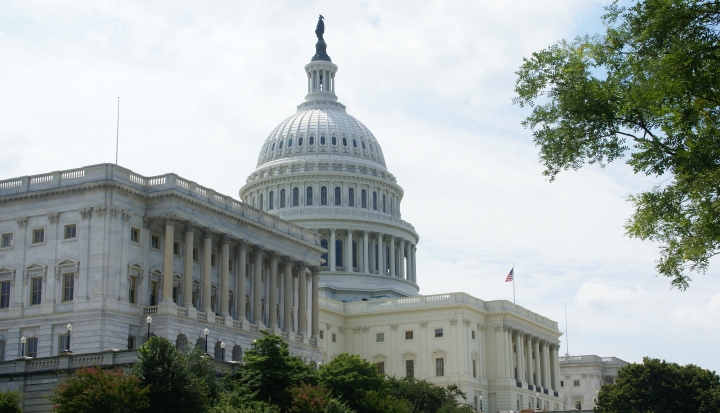The theme of Monday’s presidential inauguration was “Faith in America’s Future,” built around the image of the same ceremony from 1861, when the unfinished dome of the capitol building symbolized a nation torn in two by civil war. Abraham Lincoln progressed with the dome’s construction, despite criticism that such a lavish expense during a time of war was unnecessary, hoping to inspire faith in the restoration of the union.
This is still a useful message today, especially as party divisions and wealth gaps continue to push people in our country farther apart from each other.
However, as I’m sure the speechwriters were conscious of, we can easily reemphasize this year’s theme to ask: What role will faith have in America’s future?
References to faith, God, and religion (namely, Christianity) were plentiful at the inauguration: in the invocation, the music, the president’s address, and of course in the oath itself. However, there was also a focus on principles of faith and issues close to the Catholic Church’s heart as all people turn to face the next four years together.
As Obama’s address noted:
“A great nation must care for the vulnerable, and protect its people from life's worst hazards and misfortune .… Our country cannot succeed when a shrinking few do very well and a growing many barely make it.” Protection for the poor and vulnerable, particularly when framed in the context of budget priorities, has been a message we've heard loud and clear from church leadership. Will the church continue to be on the front lines fighting for the poor? What will the church initiate (or continue to do) to serve the least among us and provide opportunities forward for all?
“We will respond to the threat of climate change, knowing that the failure to do so would betray our children and future generations.” Pope Benedict certainly hasn't been shy about the message to care for creation, which is a tenet of Catholic social teaching. Will faith inspire in people the urgency to protect the envrionment for the next generation?
“Our journey is not complete until our gay brothers and sisters are treated like anyone else under the law — for if we are truly created equal, then surely the love we commit to one another must be equal as well.” I'm willing to bet that the treatment of our gay brothers and sisters, as well as the issue of same-sex marriage will continue to be important to the church. How will the church balance its teachings on marriage and human dignity? How will individuals decide to spread God's equal love?
“Our journey is not complete until we find a better way to welcome the striving, hopeful immigrants who still see America as a land of opportunity.” Will comprehensive immigration reform be a priority not just for the administration, but also for the church? Will we be able to "welcome the stranger"?
Both Obama and the Catholic Church are undoubtedly hoping to accomplish much in the next four years While many of the goals may overlap, Obama pointed out that our American heritage “does not require us to agree on every contour of life; it does not mean we will all define liberty in exactly the same way, or follow the same precise path to happiness.” When working together for progress, it will be important both to have faith in the future of our country and also to be open to the role of faith and religion in creating a path forward.









